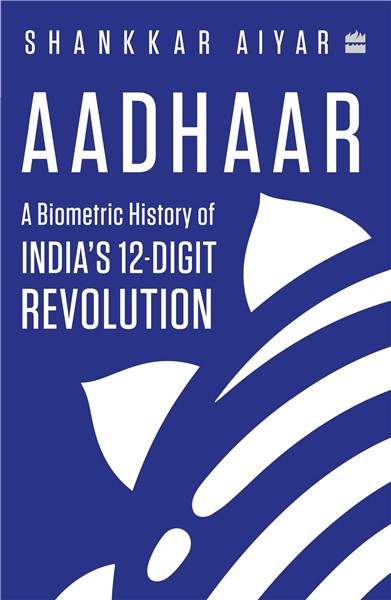Aadhaar: A Biometric History of India’s 12Digit Revolution
Shankkar Aiyar is a prominent India-based political economy analyst, columnist and author. His path-breaking book Accidental India fetched him acclaim as a public intellectual. A journalist for over three decades, Aiyar has covered every parliamentary election since 1984. His 1991 scoop on India pledging its gold reserves drew world attention to the crisis in the economy which consequently compelled liberalisation. Aiyar has analysed every Budget since liberalization. As a columnist Aiyar specializes in the interface of politics and economics. He has authored a study on India’s socio-economic fault lines and its hundred worst districts. His investigation on twenty-five years of political corruption is part of an anthology. He has been a Wolfson Chevening Fellow at Cambridge University where he studied the lifecycles of emerging economies. Aiyar is a Visiting Fellow at the IDFC Institute. ... Read more Read less
Aadhaar was born in July 2009, yoking modern technology and management expertise to political will. The biometric-based unique identification system, built by tech czar Nandan Nilekani and his team of innovators, was designed to enable subsidies and social spends reach their true destination, plug institutional corruption and save trillions of tax-rupees. In July 2017, Aadhaar is 1.15 billion identities and growing.
In Aadhaar: A Biometric History of India’s 12-digit Revolution, senior journalist Shankkar Aiyar traces the history of this ambitious, controversial undertaking. He speaks with President Pranab Mukherjee, Prime Ministers Narendra Modi and Manmohan Singh, P. Chidambaram, Yashwant Sinha, Rahul Gandhi and others to document how politicians with diametrically opposed ideologies were equally determined to propel Aadhaar.
Aiyar maps how Aadhaar’s application expanded beyond its original intent. He researches its ups, downs, and turnarounds; discusses the concerns of activists and bureaucrats on potential misuse of the database for state surveillance; raises the urgent need for a data-protection and privacy law and spells out the solutions. An unusual contemporary dramatization, this book is a breathless ride through recent changes in India’s political and economic landscape.
... Read more Read less










